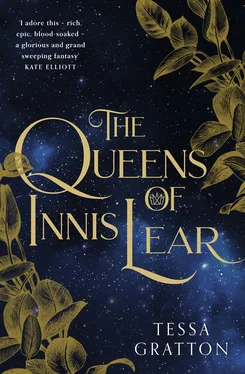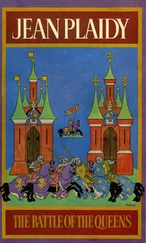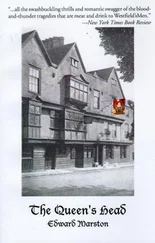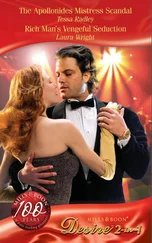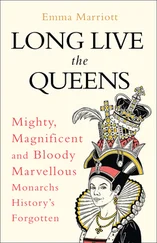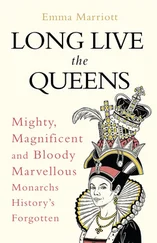“And would wait longer still, good Lear, for the chance,” called the king of Burgun with a smile in his voice.
Lear returned it. “Indeed.”
The king of Aremoria said nothing.
Kay Oak stepped forward, a hand hovering protectively near the youngest daughter’s shoulder. “Lord,” he said, going briefly to his knee. “Your kingdom wants for a single crown. Why—”
Lear cut him off. “Worry not! We will name our heir now, as the stars have prophesied. And our heir will be crowned at dawn after the Longest Night, as has been since the first king of our line.” Lear looked at Gaela, his ferocious and tall eldest, then cool Regan, the middle child, then Elia, his precious star, finally in her turn. That youngest stared rigidly at her father. She did not even seem to breathe.
Did she suspect what was to come?
The king spread his hands again, chest puffed and proud. “The stars of heaven proclaim the next queen of Innis Lear shall be the daughter who loves us best.”
In the silence, nearly everyone looked at Elia, for all knew she was the king’s favorite. But Lear had not said, the daughter I love best.
Though all three women were practiced at projecting to the world the face they chose, each gave something away in that moment: Gaela her hunger, Regan her pleasure, and Elia her utter disgust.
“Eldest,” the king said, “it is your right to speak first.”
Gaela laughed once, loud as a man. “My father, my king,” she called, moving before the throne to perform for the entire court. “I love you more than the word itself can bear.” Her voice made the phrase into a growling threat. “My devotion to the crown of Lear is as great as any child ever bore for her father, more than life and breath, and I will defend my love with all the strength and power of Lear and Astore behind me. The truth of my words is in my stars: I am the Consort Star; I rise to the Throne of Innis Lear.”
Nodding with elaborate satisfaction, Lear said, “And you, Regan? How do you answer?”
Regan did not immediately move to join Gaela before the throne, but her husband put his hand on her back and gently pushed. She spread her hands in a simple gesture of supplication. “I love you, Father, as my sister does, for we share a heart and we share stars. I ask that you appraise me at her same worth.” For a moment, her words hung in the air. Connley’s hand slid up the brown arch of her neck, and Regan frowned, then smiled up at her father as if she had only just now realized some vital truth: “Yet, Father, in my deepest heart I find that although Gaela names my love, she stops short, for there is no other love that moves me so much as my love for you.”
The king smiled magnanimously at Regan, then Gaela. The sisters glanced at each other, as if they could sharpen their smiles against each other’s teeth.
“Well said, daughters,” said the king of Innis Lear, before looking to his youngest.
She stared back.
“Elia, our joy?” the king said tenderly. “What will you say?”
Silence thundered throughout the great hall.
Courtiers leaned in, to hear the first breath she took in answer. All she had to do was be honest, and the island would be hers. All she had to do was tell the world what it already knew: she loved her father, and always had.
But when Elia Lear spoke, she said, “Nothing, my lord.”
“What?”
Lear’s calm demand echoed in the mouths of others. What had the princess said? Why? What was this game? Did the king and his daughter play it together, or was it a trap?
Elia spoke up. “Nothing, my lord.”
Lear smiled as to an errant puppy. “Nothing will come from nothing. Try again, daughter.”
“I cannot heave my heart into my mouth, Father. I love you … as I should love you, being your daughter, and always have. You know this.” Elia’s voice shook.
“If you do not mend your speech, Elia,” the king said, glowering, “you will mar your fortunes.”
Swallowing, Elia finally took a very deep breath. She smoothed hands down her skirts, and said, “If I speak, I will mar everything else.”
Lear leaned toward her. A wild thing scattered in his usually warm blue eyes. Wild and terrifying. “So untender?”
“So true,” she whispered.
“Then let truth be your only dowry, ungrateful girl,” he rasped.
Elia stepped away in shock.
The king’s demeanor transformed like a rising phoenix, hot and blasting and fast. He pointed at Elia, finger shaking as if she were a terrible specter or spirit to be feared. “You false child. You said you understood me, you saw the stars with me …” Lear threw his arms up, catching fingers in his silver-striped hair. “This is not Elia! Where is my daughter, for you are not she. No princess, no daughter! Replaced by earth saints, cursed creatures!” He shook his head as if appalled, eyes wide and spooked.
“Father,” Elia said, but before anyone else could react, the king cried out:
“Where are Aremoria and Burgun? Come forward, kings!”
Elia did not move, rooted to the rushes and rugs, trembling, as if holding back something so great, that to move would be to unleash it.
“Here, sir,” spoke Ullo of Burgun. “What now?”
Lear smiled into the stunned silence, and it was clear where Regan had gotten her dangerous expressions. “My good king Burgun, you have been on a quest for this once-daughter of mine’s love, and you now see the course of it. Would you have her still?”
Ullo stood to one side of Elia. He bowed and glanced at her. She gave nothing in return; her specialty today. When Ullo straightened he said, “Your Highness, I crave only what was promised to me: your daughter and the price of her dowry.”
“My daughter came with that dowry. This girl is … not she.” The last was said in a hush of awe or fear; it was impossible for any to tell.
Ullo took the princess’s rigid hand in his, drawing her attention up to his overly sad expression. “I am sorry, lovely Elia, that in losing a father today you also lose a husband.”
Elia choked on a laugh, and the great hall finally saw anger press through the cracks of her composure: “Be at peace with it, and not sorry, Ullo of Burgun. Since fortune and dowry are what you love, ours would not have been a good union anyway.”
Far to the left, the Earl Errigal sputtered to hide a great laugh.
Ullo snatched his hand away and, with a pinched face, snapped for his retainers and took his leave.
A half-emptier great hall remained.
“And you, Aremoria?” Lear intoned with all the drama he was able. “Would you have her? As I’ve nothing but honor and respect for you, great king, I advise you against it. I could not tell you to partake of a thing I hate.”
The youngest princess faltered back from the vitriol, knocking into a wall of leather and muscle: the king of Aremoria. His even, shrewd gaze leveled over her head and landed fully on her father.
“It seems, Lear,” Morimaros said, calm and clear, “Quite strange that this girl to whom you previously vowed the greatest of affections should in the course of not even an hour strip away every layer of love you once felt. What incredible power she has to erase a lifetime of feeling in one rather quiet moment.”
“When she was my daughter, I thought her power was that of the moon when it darkens the sun, as her mother’s was,” Lear said, sour and sad. “I thought she would be my comfort and queen, as her mother was. Now she is nothing, worth nothing.”
Morimaros turned his gaze off the king and put the full weight of it onto the daughter. “This woman is her own dowry.”
“Take her, then,” Lear said nastily. “She is yours, mine no longer or ever again.”
“Father,” said Elia.
Читать дальше
